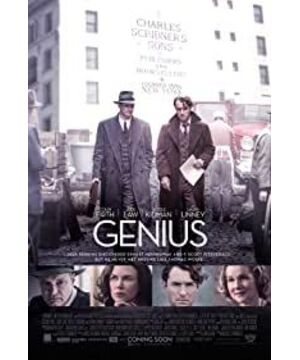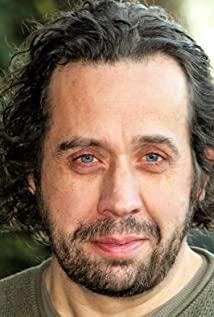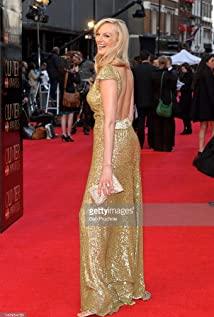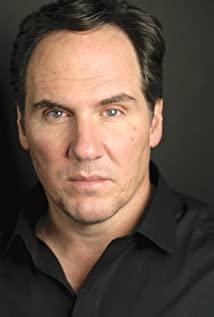"Genius Catcher" is a biographical film about a legendary American publishing wizard, Maxwell Perkins, who helped genius writer Thomas Wolf edit and publish "Angels, Hopes of the Future." They transformed "Township," "Time and River," and other immortal masterpieces into the stories of great writers. Long before he discovered Wolfe, Perkins had edited and published Hemingway's The Sun Also Rises and Fitzgerald's The Great Gatsby.
The film starts in Manhattan in late autumn. Perkins is sitting on the train home. The first time he sees Wolfe's words, he can't help but start the plot. It describes the relationship between a discerning editor and an underappreciated literary youngster. of legendary experiences and warm and touching friendships. Wolff and Perkins are two men with very different personalities and temperaments. Wolff is eccentric and creatively crazy; Perkins is deep, calm, restrained, and restrained. Perkins pinned his literary dream on Wolff, and warmed, supported, and encouraged Wolff with the care and heart of a loving father and brother.
He followed his own professional ethics, patiently editing Wolfe's work and getting the tedious word processing just right. Although he devoted all his energy and effort to editing the book, he humbly upheld his belief from beginning to end—"the book belongs to the author." In the ten-year emotional journey with Wolf, Perkins has also played the role of Wolf's "life mentor". He helped Wolf deal with all the troubles and difficult things in life, becoming Wolf's indispensable "partner" in life.
When Wolff became famous, he became more impulsive, seduced by fame and fortune, and abandoned love, ridiculed friendship, alienated family, and left Perkins stubbornly. Perkins sincerely warned him that life should not only be about him, but also for others. The film ends with a letter Wolff wrote to Perkins as he was dying, bringing the whole film to a climax.
Dear Max,
What I want to tell you most is this: no matter what happens, it can't change how I feel about you. Just like that day in November, when you picked me up at the pier, and we stepped onto the roof together, feeling the warmth, glory, and power of life.The ending of the film is sincere and touching. While deeply touching the audience's emotions, it also reveals to us countless life philosophies:
Behind a great writer, there must be a wise pusher... Pure friendship begins with selfless dedication to each other. Life is not only poetry and distant places, but also ordinary and trivial "gou." The film tells us that while we are persistently pursuing our careers and dreams, we should not ignore the relatives and friends around us. They are the wealth that belongs to us for a lifetime—love, family, and friendship. In today's impetuous society, "Genius Catcher" is a good movie that we should stop and appreciate and savor carefully.
View more about Genius reviews











